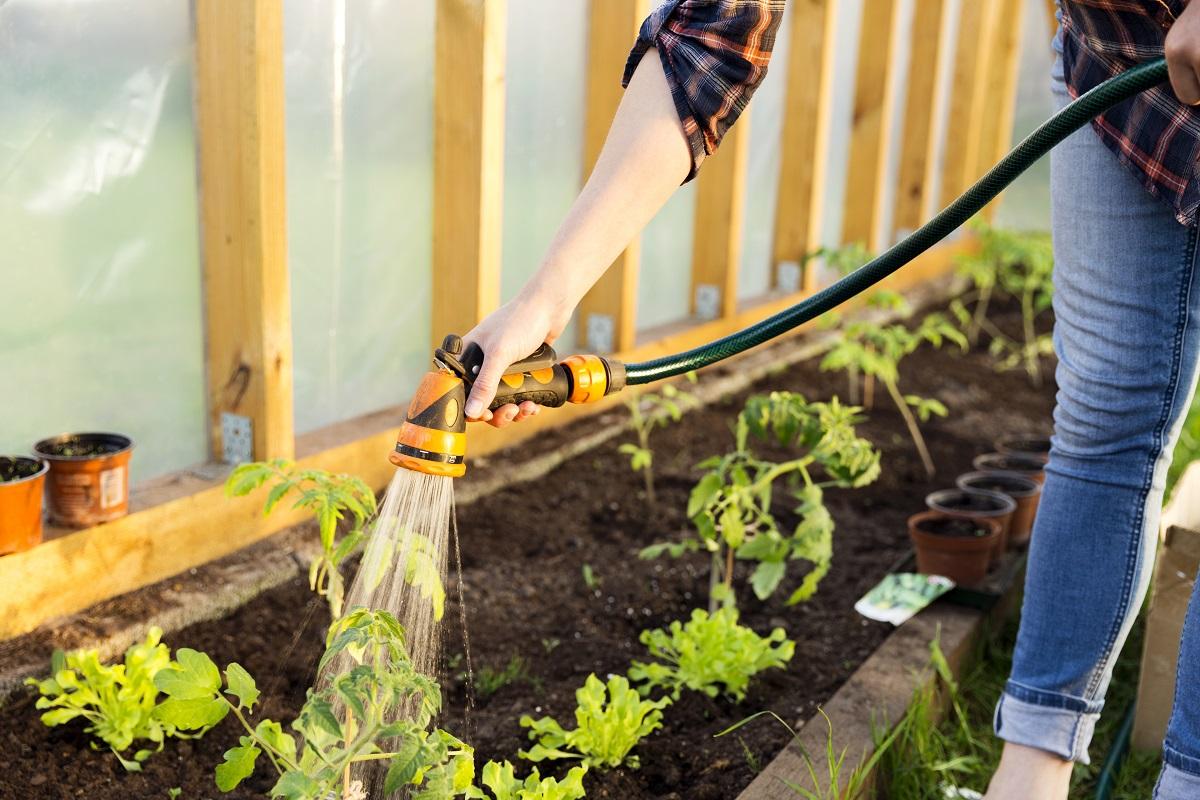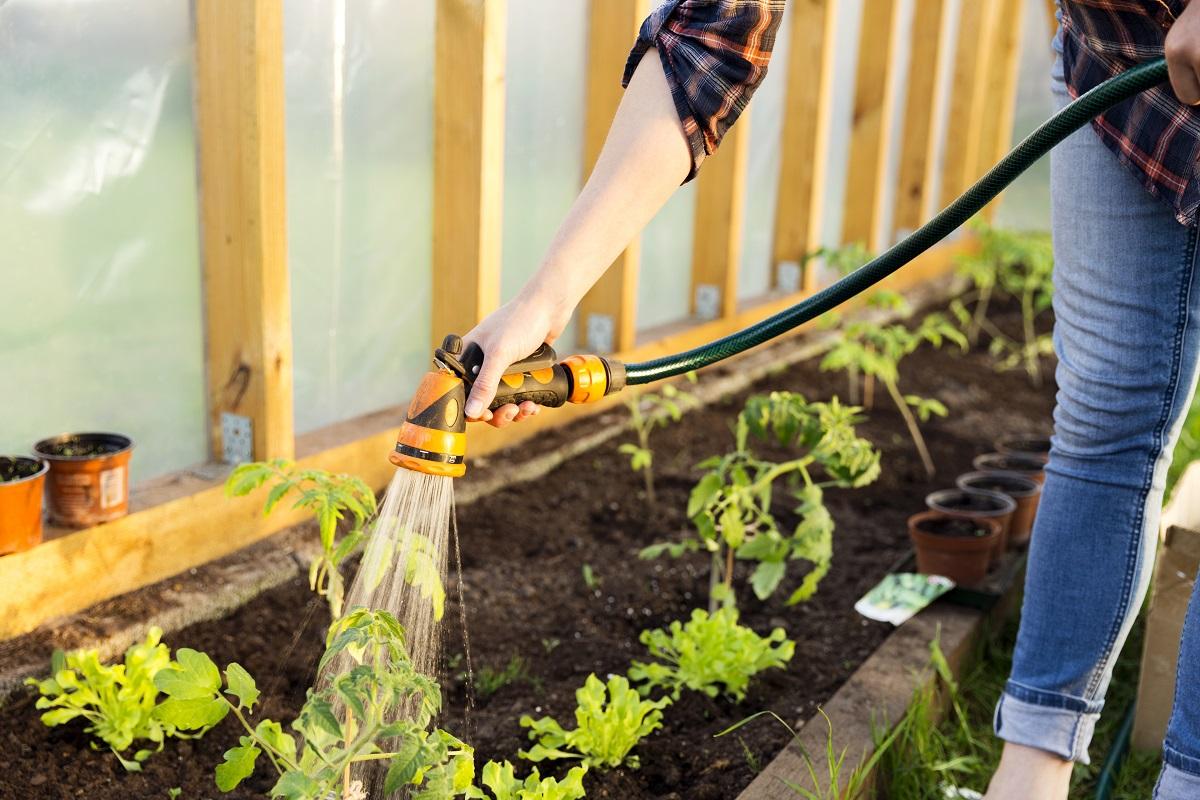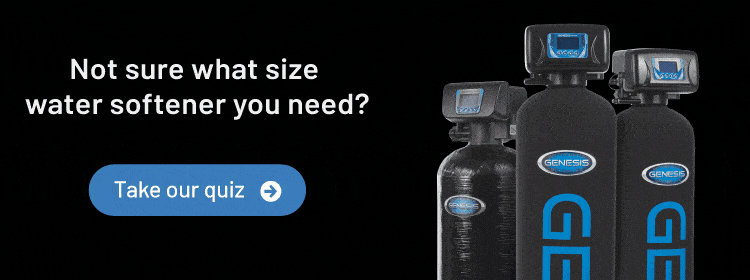Is Soft Water Bad for Plants?
Posted by Discount Water Softeners on Aug 27th 2021
Water Inside and Outside Your Home
Hard water can be a ruthless villain inside your home. It causes stains, spots, and buildup on your sinks and faucets. Unsoftened water consists of calcium and magnesium minerals that clog plumbing and shortens the life of water heaters, washing machines, and other water-using appliances. It’s an easy decision to use softened water for cleaning, washing, and other indoor tasks. But what about the great outdoors? What kind of water is best for your grass and garden?

What Is Soft Water?
Unlike hard water, soft water is free of the harsh minerals that cause damage inside a home. Water is softened when the hardness ions, calcium and magnesium, are collected by tiny resin beads through a process called ion exchange. These resin beads are charged with sodium or potassium ions. When hard water comes into contact with the resin, the hardness ions are pulled from the water and replaced with sodium or potassium ions.
Salt is added to a brine tank to complete the regeneration (cleaning) process inside a water softener. Regeneration occurs when resin beads have reached their capacity to hold the calcium and magnesium ions that it has collected during ion exchange. While it is salt that’s added to the softener to complete the softening process, contrary to popular belief, it isn’t the salt that softens the water—it’s the resin beads.
During regeneration, the resin beads are flushed with a concentration of saltwater solution (brine) from the tank. The brine forces the hard minerals to be released from the beads. Once the resin has been properly cleansed, the brine solution empties into a nearby drain.
Although the amount of sodium or salt in the resulting softened water can vary depending on the hardness of your water supply, it will not taste salty, nor should it be considered “salt water” by any stretch of the imagination. The amount of sodium in softened water is minimal. In fact, on average, homeowners that use water softeners get less than 3% of their daily sodium intake from drinking softened water. In comparison, there is approximately 5 times more salt in a single glass of milk than a glass of softened water.
Should You Use Soft Water Outdoors?
Employing the use of a softener system to eliminate hard minerals provides you with money-saving, better-tasting, top-quality water for daily use inside your home. Softening hard water will likely benefit you and your household, but can the same be said for your outdoor greenery?
In truth, a high amount of sodium can disturb the water balance of plants. In extreme circumstances, excess sodium can fool plant life into an inaccurate assessment of absorbed water. When this happens, vegetation may not acquire the water it needs and is at risk of dying due to dehydration.
Soil may also be at risk of a salt buildup and gradual degradation of ground quality. A hostile plant environment could prevent regular water absorption if the problem is not resolved. Of course, soil degradation is not limited to a sodium increase. Agricultural, industrial, and commercial pollution also contributes to diminished capacities of soil health. If you notice a decline in your plants, lawn, and garden, consider not only the water used to maintain it, but also the nutrients added for overall soil health.
The Solution
If your neighbors covet the green lushness of your lawn, or your garden is your pride and joy, the inside of your home doesn’t need to suffer for fear of damage to your outdoor haven. There are simple solutions so that you can enjoy the benefits of softened water indoors, along with untreated water outdoors.
The easiest fix is to have a bypass spigot installed on the exterior of your home. This will re-route the water from the water line before it enters your home and is treated by the water softener. All the water outside your home will no longer be softened or contain any sodium.
Another solution is to simply dilute the softened water with collected rainwater or distilled water. This will lower the concentration and the effect of any salt in your softened water, making it less likely to affect your plants and soil.
If you’ve been watering your garden and lawn with softened water with no ill effects, it’s unlikely the level of sodium in your soft water will cause any harm. If you’re still concerned about the long-term results of using treated water outdoors, you can begin frequently watering your garden with rainwater or untreated water in order to flush out the salt from the soil. Over time, your soil’s composition will return to its natural state.
Not sure what kind of water you’re using in your home right now? Find out if your water is hard, soft, or somewhere in between by purchasing a home water testing kit. Or, call Discount Water Softeners to find out what’s in your water and what can be done about it.


